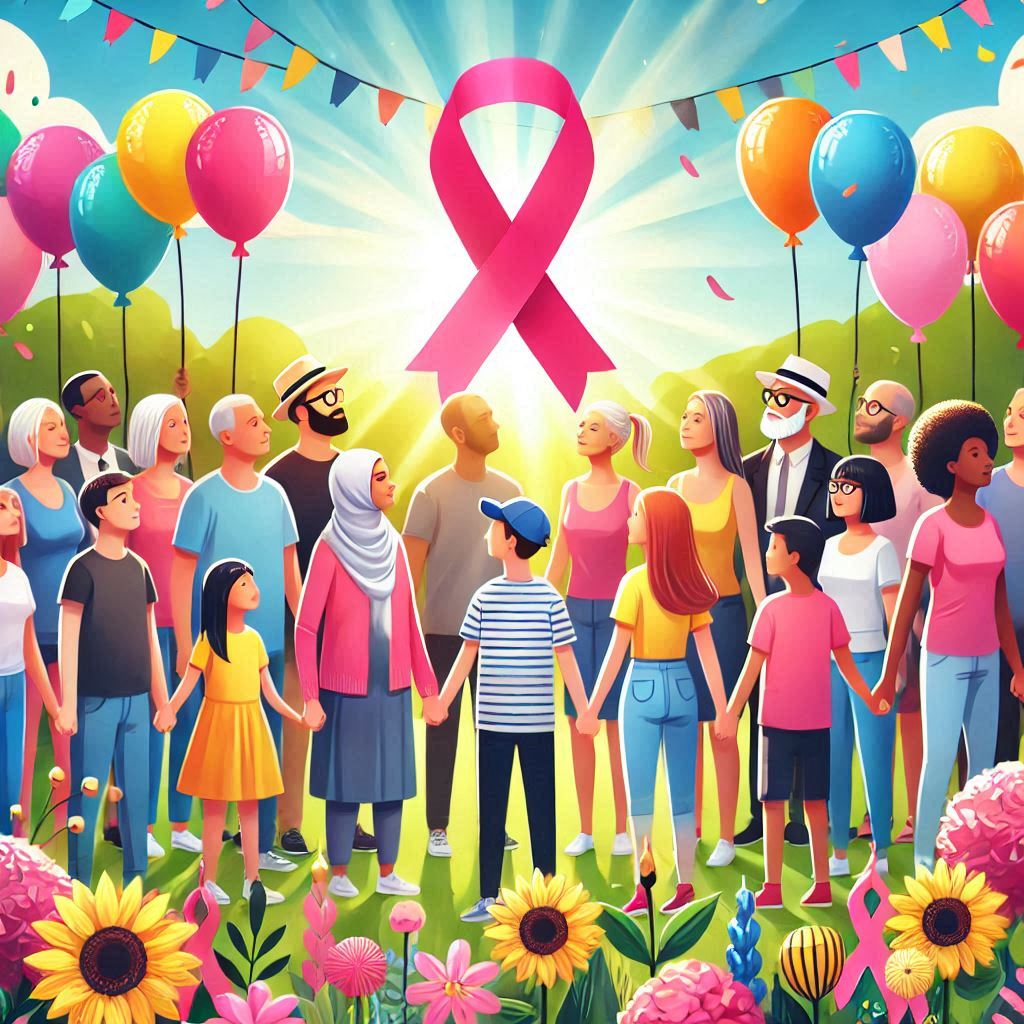Table of Contents
Introduction
We all know that cancer is a scary word, but today, I want to share some positive news. Over the years, scientists and doctors have made incredible progress in understanding cancer, and thanks to these advancements, we are seeing real hope for better treatments and even cures in some cases.
We’re at a point where cancer is no longer the death sentence it once was, and while there’s still a long way to go, the future is looking brighter for those diagnosed with cancer. So, let’s talk about the amazing advancements in cancer research, how they’re changing the landscape of cancer treatment, and what this means for all of us.
Understanding Cancer
Before we dive into the breakthroughs, let’s take a moment to understand what cancer is. Simply put, cancer is a group of diseases where cells in the body grow uncontrollably and spread to other parts. There are over 100 different types of cancer like including breast cancer, lung cancer, prostate cancer, and many more.
Now, here’s the thing. Cancer doesn’t just happen overnight. It’s a result of mutations or changes in the DNA of cells that cause them to grow uncontrollably. But why do these mutations happen? Sometimes, it’s due to lifestyle factors like smoking or poor diet, but it can also be genetic or caused by environmental factors like radiation.
The good news? Cancer research is actively looking at the causes and developing ways to stop these changes before they become life-threatening.
The Promise of Immunotherapy
One of the most exciting advancements in cancer research is immunotherapy. In the past, traditional treatments like chemotherapy and radiation were the go-to methods for treating cancer. While these treatments do save lives, they can also cause a lot of damage to healthy cells, leading to side effects like hair loss, nausea, and fatigue.
Immunotherapy, however, works differently. It helps the body’s immune system recognize and fight cancer cells. Think of it like giving your immune system a superhero boost. Instead of attacking all cells, like chemotherapy does, immunotherapy zeroes in on cancer cells, leaving healthy cells alone.
According to the American Cancer Society, CAR-T cell therapy has shown impressive results in treating certain blood cancers, with remission rates of up to 70% in patients with leukemia and lymphoma.
CAR-T Therapy
One of the most remarkable successes of immunotherapy is CAR-T cell therapy. This is a type of immunotherapy where doctors take a patient’s own T cells (a kind of immune cell), modify them in a lab to better fight cancer, and then put them back into the patient’s body. This approach has shown promising results, especially in treating certain types of blood cancers like leukemia and lymphoma. In fact, studies show that CAR-T therapy has led to remission in patients who had run out of other treatment options.
Research from the American Association for Cancer Research showed that immunotherapy has extended the survival of patients with melanoma and lung cancer by several years, with some patients being disease-free after treatment.
Immunotherapy Success
Liquid Biopsy: A Breakthrough in Early Detection
Another significant advancement that’s changing the way we detect cancer is the liquid biopsy. Traditional biopsies involve taking a sample of tissue from a tumor, which can be invasive and difficult to perform in some cases. But liquid biopsies are a game-changer. Instead of going under the knife, doctors can now test a blood sample for cancer-related DNA or other biomarkers.
This method not only allows for earlier detection but also helps doctors track the progression of the disease or see if a treatment is working. Studies have shown that liquid biopsies can detect certain cancers, like lung and breast cancer, long before symptoms appear. Early detection, as we all know, is key to improving survival rates.
A study published in Nature Medicine found that liquid biopsies detected cancer-related mutations in nearly 70% of patients with early-stage lung cancer, a significant step toward earlier detection.
Liquid Biopsy
Targeted Therapy: Precision Medicine
Next, let’s talk about targeted therapy. Imagine a world where cancer treatments aren’t one-size-fits-all, but instead are personalized to each patient’s cancer. Well, that world is already here. Targeted therapies are treatments designed to specifically target the genetic changes that drive cancer. This means doctors can choose the right treatment based on the exact type of mutation a patient has.
For example, in breast cancer, a common mutation is in a gene called HER2. Targeted drugs like Herceptin have been developed to specifically attack this gene and stop the cancer cells from growing. And it’s not just breast cancer. Targeted therapies are being used for various types of cancer, including lung, colon, and melanoma.
What’s even more promising is the fact that targeted therapies tend to have fewer side effects than traditional treatments because they focus on cancer cells and leave healthy cells unharmed.
The Role of Artificial Intelligence (AI) in Cancer Research
Now, let’s talk about a technology that’s changing the way we diagnose and treat cancer—artificial intelligence (AI). AI has been making huge strides in many fields, and cancer research is no exception. AI algorithms are being trained to analyze medical images, like CT scans and MRIs, to help doctors detect cancer earlier and more accurately.
In fact, studies have shown that AI can sometimes outperform human doctors in reading medical images. For example, researchers in the UK used AI to analyze breast cancer scans and found that the AI model was better at identifying cancer than experienced radiologists.
AI is also being used to analyze vast amounts of genetic data to predict which treatments might work best for individual patients. This allows doctors to make more informed decisions and offer personalized care.
Cancer Vaccines: A New Hope
Another fascinating area of cancer research is the development of cancer vaccines. We all know vaccines are used to prevent infectious diseases like the flu, but did you know that scientists are also working on vaccines to prevent cancer?
One of the most well-known cancer vaccines is the HPV vaccine, which helps prevent cervical cancer by protecting against the human papillomavirus (HPV). There’s also ongoing research into vaccines for other cancers, including breast cancer and lung cancer.
The idea behind these vaccines is to train the immune system to recognize cancer cells early and destroy them before they have a chance to grow and spread. While we’re not quite there yet, the progress made in this field is incredibly exciting.

The Future of Cancer Research: What’s Next?
So, where are we heading in the future? What’s next in the fight against cancer? One of the most exciting developments is personalized medicine. With advances in genomics, scientists can now map the genetic makeup of a patient’s tumor and tailor treatments accordingly. This means we can move away from a “one-size-fits-all” approach and create treatments that work best for each individual.
Additionally, researchers are looking into combination therapies, which involve using multiple treatments together to increase their effectiveness. By combining immunotherapy, targeted therapy, and chemotherapy, scientists hope to create even more powerful treatment regimens that can attack cancer on multiple fronts.
And let’s not forget about cancer prevention. While treatments are essential, preventing cancer from happening in the first place is just as important. Lifestyle changes like eating a healthy diet, exercising regularly, and avoiding tobacco use can significantly lower the risk of cancer. Researchers are working to better understand these factors and how they contribute to cancer development.
Conclusion: Hope for the Future
To wrap up, I want to remind you of one important thing. Cancer research is not just about the breakthroughs we’ve seen today, but the ones that are coming tomorrow. The pace of innovation is accelerating, and with each new discovery, we are getting closer to not only curing cancer but also preventing it in the first place.
For those who are battling cancer today, these advancements offer hope. For the rest of us, they serve as a reminder that science is always moving forward. So, let’s continue to support cancer research, stay informed, and never lose hope. The future of cancer treatment is bright, and together, we can all be part of this incredible journey.
About Author
I’m Ayesha Iqbal, a student studying MBBS at Services Institute of Medical Sciences (SIMS) Lahore. I write about health for “GenZ Cares” because they care a lot about young people staying healthy. I do research and try new things to learn more about how to keep everyone feeling good. My articles focus on topics like nutrition, exercise, mental well-being, and ways to lead a healthier lifestyle. Through my writing, I aim to share valuable insights and practical tips that can make a positive difference in people’s lives.
Reviewed By

This article is reviewed by “Nashit Aliyan“, a certified Surgical Technologist from Government College University Faisalabad under section 2017-2021. I am 17A medical officer as well as Strategic and financial planning expert and Proficient in surgical field. Me and my team use the latest technology to perform complex surgical procedures. I recommend to “GenZ Cares” because they are really hardworking in their work and care a lot about youth to staying healthy.
